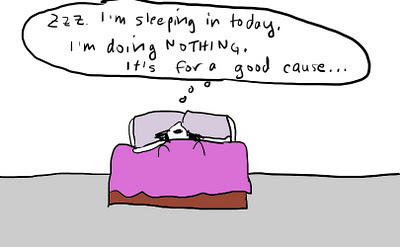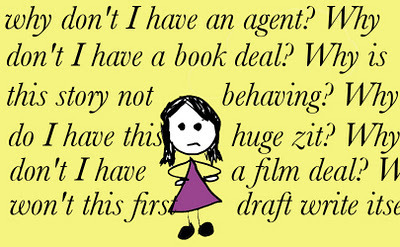Lydia Kang's Blog, page 27
January 18, 2012
Turning laziness into good stuff
 Theresa Milstein came up with a great idea recently. She wanted to be inspired to write whenever possible. Every day, in fact. But what about making those down times productive too?
Theresa Milstein came up with a great idea recently. She wanted to be inspired to write whenever possible. Every day, in fact. But what about making those down times productive too?So we collected ourselves into a little Facebook group (Hi Sharon and Susan and Crystal and Ann and Robyn!) called Write On to Build On.
For every day we don't write, we donate a dollar to a worthy cause.
After a bit of searching, we chose buildOn.

"buildOn runs after-school youth programs that mobilize urban teens to lift up their communities and change the world through intensive local service and by building schools in some of the poorest countries on the planet. We are a movement of students, educators and communities. Through our programs, people inspire people across neighborhoods, across cities, and across continents to reach and think beyond their realm of possibility."
We were inspired too!
In the process of picking an organization, we used Charity Navigator to evaluate the accountability and transparency of charities and help us pick a highly-rated charity that would put the majority of our donations directly to good use.
Do you have plans to give back, however small, this year? And I'm not just talking about money. Mentoring a new writer, volunteering, supporting others...how will you do it?
****
Please take a moment to stop by Sarah Fine's blog, where she answers her own Sisterhood of the Traveling Blog question: "Where do your expectations for your writing (career/skill/quality/achievements) come from? Is the source internal, external, or both? And how do you cope when you don't meet them?" Check out recent answers by Laura, me, and next week with Deb!
Published on January 18, 2012 03:00
January 16, 2012
Medical Mondays: Nearly Ready for the Apocalypse
 I tend to daydream about surviving horrible situations. Well before Survivor or Lost aired on TV, I would sit in the subway car in New York and think: What would happen if these ten passengers and I all got stuck together, for a month, trying to survive? Who'd rise above the situation and be the leader? Who'd become friends, when normally they'd never ever talk? Who'd be in charge of getting food? Who'd steal it?
I tend to daydream about surviving horrible situations. Well before Survivor or Lost aired on TV, I would sit in the subway car in New York and think: What would happen if these ten passengers and I all got stuck together, for a month, trying to survive? Who'd rise above the situation and be the leader? Who'd become friends, when normally they'd never ever talk? Who'd be in charge of getting food? Who'd steal it?As a child, I imagined trekking through the woods, wearing a coat bearing fifty pockets. In those pockets? My beloved stuffed animals, first-aid kits, fire-making materials, food and water. This was a fun daydream for me.
I know. It's odd. Or rather, I'm odd.
But one thing always stopped those survivalist/disaster daydreams in their tracks. My vision problems.
Here's how bad it was: When I held a book about eight inches away from my face, the text was too blurry to read. Without contacts or glasses, I was seriously disabled. Contacts can be swept out of one's eyes by a single rogue wave in the ocean. Glasses shattered by one wayward behind, sitting down.
So on Friday, I got laser vision correction, after thinking it over for a decade.
After 5 mg of Valium, I was ready to go. I asked my hubs to try to scare me, to see if it was having an effect yet. When he asked, "Are you scared of the surgery?" I laughed at him. "Okay. It's working," he decided.
The surgery itself was quick, but not quite painless. There was intense pressure and burning and the feeling like they were playing hockey with my eyeballs for a while. When they were done, I could see the clock on the wall, but everything was foggy, like I had a film on my eyes. I was cautiously optimistic.
(If you really want to see what I went through, here's a YouTube video. It is NOT for the squeamish!)
That night, my eyes burned so badly and the light was so excruciating I could barely open them for the intensive eye drop treatments I needed. I had (still have) big hemorrhages on the whites of my eyes.
The next morning, I woke up to see the fine branches on the trees outside my bedroom window.
I almost cried.
Now it's Sunday, and though I'm still seeing halos around the lights, I can now see the tips of the branches three houses away.* There's no guarantee it'll stay this good, but for now, I'm beyond thrilled.
I'm ready for that Apocalypse now.**
*Keep in mind, every patient's experience with laser vision correction may be different. I am not promoting this, only discussing my own experience. It's a very, VERY personal decision!
**Actually, I'm hoping that since I'm prepared for it, it won't happen, ha ha.
If you've got a fictional medical question, let me know! Post below or email me at
 All I ask is that you become a follower and post a link on your blog when I post your answer. This is for fictional scenarios, only. Please check out the boring but necessary disclaimer on my sidebar --->
All I ask is that you become a follower and post a link on your blog when I post your answer. This is for fictional scenarios, only. Please check out the boring but necessary disclaimer on my sidebar --->Also, don't forget to stop by Laura Diamond's Mental Health Mondays and Sarah Fine's The Strangest Situation for great psychiatric and psychological viewpoints on all things literary. :)
Now follow Medical Mondays on Twitter! #MedMonday
Published on January 16, 2012 03:00
January 13, 2012
Tough Time Troubles
 I have a post on The Lucky 13's on how to get through some writer tough times as a writer. Also, I answer the question of whether or not published authors can produce sunshine and rainbows out of their rear end.
I have a post on The Lucky 13's on how to get through some writer tough times as a writer. Also, I answer the question of whether or not published authors can produce sunshine and rainbows out of their rear end.Check it out, if you can.
Today, I am getting my eyeballs lasered, so if I don't comment on your blog, you'll know why. I've finally decided to fix my myopia so I won't be left behind during the upcoming Apocalypse.
I'm joking. Sort of.
Have a great weekend!
Published on January 13, 2012 03:00
January 11, 2012
Me and My Critic Fairies

Me and my Critic Fairy Critters
This month's Sisterhood of the Traveling Blog question comes from Sarah, who asks:
"Where do your expectations for your writing (career/skill/quality/achievements) come from? Is the source internal, external, or both? And how do you cope when you don't meet them?"
Oh the pressure.
My expectations for my career come from me. What I want out of a writing career has changed from a spastic "I WANNA WRITE A BOOK!" to a more refined, "I would love a successful, lifelong career in YA fiction writing."
Defining success is a very personal, individual thing. I'm still figuring it out. Good reviews? A certain number of books sold? Both? Just being published (which is already huge for me)? Just writing the stories I want to write? We'll see.
As for the skill and quality of my writing? External or internal? I'd say both.
For me, the external sources of pressure include:
future readersmy crit partnersmy agentmy editor other YA books that blow me away with their story lines and prose
The internal sources of pressure come from me trying my hardest to write a page of a novel that I can read and say, "Wow, this is good. How did I do that?" Something I can be really proud of.
Now, the last question: How do I deal when I don't meet my expectations?
For my career? Ask again later, says the Eight Ball. It's too early.
For my writing, it's revise, revise, and revise. Revision has been the key to my writing skills improving. I hate doing them, but I also love them because they make me a better writer. I set the bar very high for myself. I'm used to reading my writing and knowing when it sucks lemons. Because at the end of the day?
I am my harshest critic.
Published on January 11, 2012 03:00
January 9, 2012
Medical Mondays: My Armadillo Gave Me Leprosy
 It's one of those days. I woke up and decided to do a post on leprosy. *shrugs*
It's one of those days. I woke up and decided to do a post on leprosy. *shrugs*Leprosy is a very misunderstood disease. People think of sick beggars with fingers and limbs falling off left and right, severe deformities of their face and body, and of course, a horribly contagious disease without any treatment.
Not so! So let's learn some leprosy stuff.
What is it?
Leprosy (also called Hansen's Disease) is caused by a bacterium, Mycobacterium leprae.
How common is it?
In 1985, there were 54 million cases worldwide. In 2010, there were less than 300,000. In the U.S., there were 205 new cases in 2010.
Where is it most commonly found?
In developing countries, like Bangladesh, Brazil, Nigeria, for example. Most of the U.S. cases are from immigrants or those traveling to developing countries.
How do you get it?
It's usually spread through respiratory droplets, similar to the flu or colds. Some cases have been reported after contact with armadillos. Yes! The pill bugs of the animal world!
Do the armadillos suffer from leprosy too?
Most armadillos don't live long enough in the wild to manifest the disease. But in captivity, they do. Up to 20% of the armadillo population is probably affected. They probably got it from humans centuries ago! Yep, OUR fault.
How contagious is it?
Most people exposed to leprosy do NOT get the disease.
What are the symptoms?
Leprosy affects the skin and the nerve endings of the body.
After an exposure, it usually takes 3-5 years before any signs show up.
Skin lesions that can look like circular burn marks, target lesions, thickened reddish patches
Numbness within those skin lesionsTingling or numbness of the hands and feetLumps and nodules on the face and earlobesLoss of eyebrows and eyelashesDryness of the cornea (the clear covering over your iris), abrasions and ulcersOnly in advanced disease, when the numb fingers and feet allow people to get trauma and infections, are there limbs falling off--not directly due to leprosy, but the secondary infections that happen.
Factoids:
The leprosy bacterium grows better in cooler environments, which is why it has a tendency to affect the skin and respiratory tract and armadillos (cooler core body temperature than other animals).It tends to infect men more than womenIt's relatively slow growingThe nerve damage can cause disability to the legs, arms, and eyes can be permanent and cause permanent disability, which is why early treatment is very important.
Is there a vaccine?
Yes. The BCG vaccine (Bacillus Calmette-Guerin) which is usually used outside of the U.S. to prevent tuberculosis, is also over 50% effective in preventing leprosy. Because leprosy is so uncommon in the U.S., this vaccine isn't used here.
What is the treatment?
Antibiotics. Dapsone and rifampin, and sometimes a third agent clofazimine, are used for anywhere from 12 to 24 months of treatment. These medications are highly effective, meaning it's pretty easy to cure leprosy.
Not sure if you're going to run with this and write about leprosy in your next book, but if you do, do me a favor and stick an armadillo in there, okay? :)
If you've got a fictional medical question, let me know! Post below or email me at
 All I ask is that you become a follower and post a link on your blog when I post your answer. This is for fictional scenarios, only. Please check out the boring but necessary disclaimer on my sidebar --->
All I ask is that you become a follower and post a link on your blog when I post your answer. This is for fictional scenarios, only. Please check out the boring but necessary disclaimer on my sidebar --->Also, don't forget to stop by Laura Diamond's Mental Health Mondays and Sarah Fine's The Strangest Situation for great psychiatric and psychological viewpoints on all things literary. :)
Now follow Medical Mondays on Twitter! #MedMonday
Published on January 09, 2012 03:00
January 6, 2012
Please! Help a Writer Out.
I don't do this very often, but Candace is a dear writing friend and she's proud and brave as can be. It took a lot for her to ask for help.
Stop by her blog and if you can, help out.
From the bottom of my heart, if you do, I thank you.
Stop by her blog and if you can, help out.
From the bottom of my heart, if you do, I thank you.
Published on January 06, 2012 14:36
The Medical Humanities: Where to Submit
 I've been helping to develop a Medical Humanities presence where I work as a primary care doc.
I've been helping to develop a Medical Humanities presence where I work as a primary care doc.Healthcare can unfortunately be a spirit-draining endeavor. I started writing non-fiction narrative pieces as an outlet early on in my career.
Writing narrative non-fiction was startlingly therapeutic for me, and eventually lead to writing poetry. And that lead to writing fiction.
So I owe a lot to the medical humanities.
If you ever write poetry, fiction, or narrative non-fiction that explores the human condition or the intersection between medicine and life, here is a list of places that might accept your submissions.
For most of these, you don't need to be a doctor or be working in the healthcare environment to submit. Many of these journals also accept photography and artwork, along with poetry, fiction, and narrative non-fiction.
Consider it. The world would be a better place if everyone could share your stories!
Published on January 06, 2012 03:00
January 4, 2012
Why Did You Start Blogging?
I've been blogging for nearly two years now. Lately I've been thinking a lot about what role blogging plays in my world as a writer. I'm going to explore this topic a bit more this year, so bear with me. (That phrase is funny. Bear with me. I feel a doodle coming on...)
 I started blogging on a whim. People said you need to blog to become a writer, for an agent/publisher wouldn't pick up a writer without a strong online presence.
I started blogging on a whim. People said you need to blog to become a writer, for an agent/publisher wouldn't pick up a writer without a strong online presence.
BUT I was also as freaked out as a kid taking the SAT test with no pencil and no clothes. Yep. Like that. I assumed blogging meant no more private me, showing everyone what a silly person I was, how sadly unpublished and woefully unprepared I was for all things blogging. Still, I dove in with post #1.
So a day after I started blogging, I decided to quit.
But then I thought, "I should blog about wanting to quit blogging" and then post #2 was born. And it kept going, and going...
So how about you? When and why did you start blogging?
**********
This week's Sisterhood of the Traveling Blog question comes from Sarah Fine, who asks:
"Where do your expectations for your writing (career/skill/quality/achievements) come from? Is the source internal, external, or both? And how do you cope when you don't meet them?"
Great question, Sarah! This week, Laura will answer and next week, I'm up!

 I started blogging on a whim. People said you need to blog to become a writer, for an agent/publisher wouldn't pick up a writer without a strong online presence.
I started blogging on a whim. People said you need to blog to become a writer, for an agent/publisher wouldn't pick up a writer without a strong online presence.BUT I was also as freaked out as a kid taking the SAT test with no pencil and no clothes. Yep. Like that. I assumed blogging meant no more private me, showing everyone what a silly person I was, how sadly unpublished and woefully unprepared I was for all things blogging. Still, I dove in with post #1.
So a day after I started blogging, I decided to quit.
But then I thought, "I should blog about wanting to quit blogging" and then post #2 was born. And it kept going, and going...
So how about you? When and why did you start blogging?
**********
This week's Sisterhood of the Traveling Blog question comes from Sarah Fine, who asks:
"Where do your expectations for your writing (career/skill/quality/achievements) come from? Is the source internal, external, or both? And how do you cope when you don't meet them?"
Great question, Sarah! This week, Laura will answer and next week, I'm up!
Published on January 04, 2012 03:00
January 2, 2012
Medical Mondays: I'm Telekinetic! Almost.
Hey all, and Happy New Year!
I find the idea of telekinesis fun but faulty. How is it scientifically possible? I'm willing to make allowances for fiction, but in real life, I'm not a believer.
Then I saw this game called MindFlex. Looks like Mattel got a leg up on the paranormal universe, heh heh.
So you wear this headband with electrodes attached to your ears and around your head. Supposedly, it reads electrical brain activity and translates that to powering up a tiny fan in the console. Thus, the ball levitates.
We got if for the kids for Christmas. Okay, um. We got it for us too, since we've played it more than they have! I couldn't get it to work for the longest time (not enough caffeine, maybe?). Finally, I started babbling random things to see what would happen.
Check out what gets my mind totally focused and unfocused!
Mental power is full of electricity and magic, I tell you. Use it to good effect for a very productive 2012!
If you've got a fictional medical question, let me know! Post below or email me at All I ask is that you become a follower and post a link on your blog when I post your answer. This is for fictional scenarios, only. Please check out the boring but necessary disclaimer on my sidebar --->
All I ask is that you become a follower and post a link on your blog when I post your answer. This is for fictional scenarios, only. Please check out the boring but necessary disclaimer on my sidebar --->
Also, don't forget to stop by Laura Diamond's Mental Health Mondays and Sarah Fine's The Strangest Situation for great psychiatric and psychological viewpoints on all things literary. :)
Now follow Medical Mondays on Twitter! #MedMonday
I find the idea of telekinesis fun but faulty. How is it scientifically possible? I'm willing to make allowances for fiction, but in real life, I'm not a believer.
Then I saw this game called MindFlex. Looks like Mattel got a leg up on the paranormal universe, heh heh.
So you wear this headband with electrodes attached to your ears and around your head. Supposedly, it reads electrical brain activity and translates that to powering up a tiny fan in the console. Thus, the ball levitates.
We got if for the kids for Christmas. Okay, um. We got it for us too, since we've played it more than they have! I couldn't get it to work for the longest time (not enough caffeine, maybe?). Finally, I started babbling random things to see what would happen.
Check out what gets my mind totally focused and unfocused!
Mental power is full of electricity and magic, I tell you. Use it to good effect for a very productive 2012!
If you've got a fictional medical question, let me know! Post below or email me at
 All I ask is that you become a follower and post a link on your blog when I post your answer. This is for fictional scenarios, only. Please check out the boring but necessary disclaimer on my sidebar --->
All I ask is that you become a follower and post a link on your blog when I post your answer. This is for fictional scenarios, only. Please check out the boring but necessary disclaimer on my sidebar --->Also, don't forget to stop by Laura Diamond's Mental Health Mondays and Sarah Fine's The Strangest Situation for great psychiatric and psychological viewpoints on all things literary. :)
Now follow Medical Mondays on Twitter! #MedMonday
Published on January 02, 2012 03:00
December 28, 2011
A word on Speedos...
Just wanted to drop in to remind you that it's Deb Salisbury's turn to see how she answers our Sisterhood of the Traveling Blog question for the month:
"Do you have any formal writing training, or have (or considered) an MFA in creative writing?"
As for me, I am still on a blog vacation until the New Year. I'm still reading (four novels down, more to come!) and am spraining my brain trying to delete images from my recent beach trip (go away Mr. Prancing Greased-Up Mohawk Man With Teeny Red Speedo. Ewwwwwww. Gag.)
There. Now he's in your brain too. Thanks for sharing my pain. Hooa!
"Do you have any formal writing training, or have (or considered) an MFA in creative writing?"
As for me, I am still on a blog vacation until the New Year. I'm still reading (four novels down, more to come!) and am spraining my brain trying to delete images from my recent beach trip (go away Mr. Prancing Greased-Up Mohawk Man With Teeny Red Speedo. Ewwwwwww. Gag.)
There. Now he's in your brain too. Thanks for sharing my pain. Hooa!
Published on December 28, 2011 03:00



